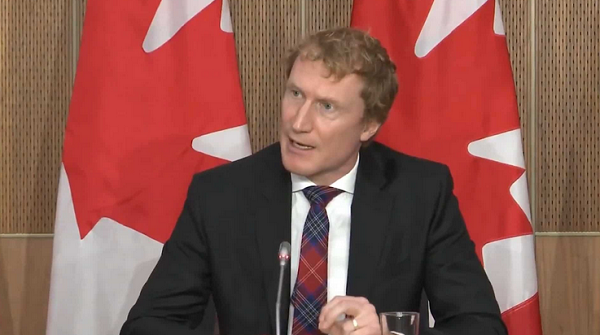Feds move to crack down on job-selling scams in immigration system
Temporary residents vying to obtain permanent residency will no longer be awarded additional points in their immigration applications for holding a job that is supported by a Labour Market Impact Assessment, according to Immigration Minister Marc Miller.
Mr. Miller’s announcement on Tuesday is the latest in a series of moves Ottawa has taken to crack down on immigration scams and fraud that have increased in tandem with the rising number of temporary residents in Canada over the past five years.
An LMIA is a document that an employer requires to justify the hiring of a foreign worker through the Temporary Foreign Worker Program. LMIA jobs guarantee temporary work permits in Canada, and they add 50 or 200 points to a person’s application for permanent residency in the Express Entry system, a major pathway for economic immigration to Canada.
Permanent residency applicants with an LMIA job offer have an advantage over applicants without one because of these additional points, assuming all other credentials – such as language proficiency, education level and work experience – are equal. These positions have become highly coveted, spawning a flurry of illegal job sellers, who sometimes charge applicants up to $40,000 in exchange for an LMIA job offer.
Employers and recruiters are prohibited by federal and provincial law from charging foreign workers recruiting fees.
“We are implementing further measures that will reinforce program integrity and reduce potential LMIA fraud, such as removing additional points that candidates receive under Express Entry for having a job offer,” Mr. Miller told reporters.
“This measure is expected to remove the incentive for candidates to purchase an LMIA, resulting in increased fairness and integrity in the system.”
Immigration, Refugees and Citizenship Canada has not disclosed further details about when the policy change will be implemented. As of Dec. 18, an online tool on IRCC’s website that calculates an applicant’s immigration score through Express Entry still awarded 50 points to an LMIA job in a non-senior-management position. Those who have job offers in senior management positions get awarded 200 points in their PR applications through the Express Entry system.
Immigration advocates have been campaigning for Ottawa to remove points awarded for LMIA jobs in light of the rise in scams associated with these jobs; they often target international students who are struggling to meet the cut-off score to gain permanent residency after spending years in Canada.
With so much competition for immigration spots, 50 points can make the difference between whether someone can settle in Canada permanently.
Hundreds of international students and members of the Naujawan Support Network (NSN) – a labour advocacy and migrant rights group based in Brampton, Ont. – have been camped out at a busy intersection in the city for months now to draw policy makers’ attention to the issue of LMIA fraud, to which many of their members have fallen victim.
Approximately 70,000 international students will see their postgraduate work permits expiring at the end of 2024, amplifying their desperation to obtain a new path to permanent residency via an LMIA-approved job.
The NSN called Mr. Miller’s announcement a “victory” but said that its encampment would remain until other demands – such as extending visas for those expiring permit holders – are met.
Mikal Skuterud, a labour economist and immigration expert at the University of Waterloo, noted that the idea behind awarding extra points for an LMIA job was so employers and businesses get a say in which immigrants get prioritized in the PR application pool.
“If a candidate had employment in Canada, they should be ahead in the job queue. It was a system that worked for a long time,” he said.
But the rising number of temporary residents trying to obtain permanent residency, coupled with a reduction in the federal government’s projected permanent-resident intake, has raised the cut-off score needed to successfully make the transition. (Statistics Canada reported on Tuesday that Canada had more than three million temporary residents as of Oct. 1, an increase of 76 per cent over two years.)
Now, even highly specialized graduates of Canadian universities in STEM fields might not obtain permanent residency because they do not meet the cut-off score.
“That’s the controversy,” Prof. Skuterud explained. “We have gone from cut-offs of 460 [points], to over 500 regularly. So now, those extra 50 points you get from an LMIA job makes all the difference. You’d do anything to get it.”
This article was first reported by The Globe and Mail













